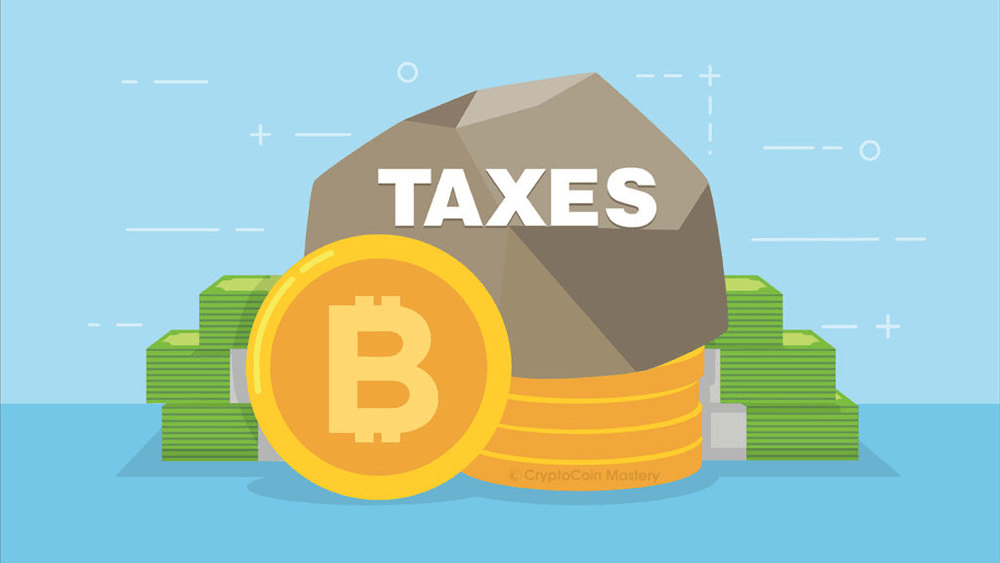Crypto Taxes in 2023

You have to report cryptocurrency as income and pay taxes on it when you sell it or use it for transactions. The U.S. dollar is the general value of cryptocurrency, so you would need to convert your currency into dollars when completing these actions: buying, selling, mining, earning, or using it in some way.
Here’s how crypto taxes work:
1. The taxation of your cryptocurrency assets depends on how you acquired them.
If you want to sell your cryptocurrency and make a profit, you’re taxed on the total amount of money made from the sale. It’s important to remember that this doesn’t just apply to selling crypto for cash; it also refers to exchanging one type of cryptocurrency directly for another, as well as using crypto currency to pay for goods or services.
Crypto taxes are calculated depending on your individual circumstances. In short:
If you receive cryptocurrency as compensation for services or goods, that value is taxable immediately— similar to earned income. crypto obtained from You also don’t have to wait until you sell, trade, or use it before paying the IRS.
If you sold, spent, or traded your cryptocurrency for cash on an exchange or another crypto, you will owe taxes if the value when cashed out is greater than what you paid for it. You may have a capital gain that’s taxable at either short-term or long-term rates.
Brian Harris, a tax attorney from Fogarty Mueller Harris, PLLC located in Tampa, Florida stated that buying and selling cryptocurrency produces some of the same difficult taxes as other more traditional assets- such as houses or stocks.
“The value … goes up and down, and then if you sell or exchange that property, then you have capital gain or loss, depending on how that value has moved,” Harris says.
2. Two factors determine your tax rate
The amount of taxes you pay for buying and selling crypto depends on:
The amount of time you held the cryptocurrency before selling it will determine how much tax you owe. For example, if sold less than a year after acquisition, you could pay 10-37%. However, longer ownership means lower rates between 0-20%.
Your total income for the year is what determines which tax bracket you fall into and subsequently, how much tax you owe.
3. The IRS has the paperwork you’ll need
As a reminder, the IRS has added a question to tax return forms asking filers whether they bought, sold, exchanged, or otherwise disposed of “any virtual currency.”
Good bookkeeping habits will help you avoid penalties.
Keep records of the fair market value of your cryptocurrency when you received it, as well whether it was through mining or purchasing. Also document its worth when you use or sell it.
You will receive a Form 1099-K if you make more than $20,000 in payments and have 200 transactions per year. Nonetheless, even though you might not use Bitcoin or other cryptocurrencies 200 times annually,you are still required to pay taxes on your profit.
Unlike other software that only imports stock information from brokerages, you’ll need special software to input your crypto data. Although if you have less than 50 trades, it’s easy enough to do by hand.
4. You can write off crypto losses
Cryptocurrency prices tanked in early 2022, so if you were holding Bitcoin or any other digital asset at that time, make sure to declare the losses on your taxes. This is called tax-loss harvesting and it might help reduce your overall tax liability. The process for deducting capital losses from Bitcoin or other cryptocurrencies is just like the one used for stocks and bonds. The maximum amount you can write off in one year is $3,000.
5. Failure to report cryptocurrency can be costly
Although cryptocurrencies promote privacy, that does not mean traders are immune to being monitored. The IRS uses different approaches to stay up-to-date on the industry; for example, by issuing subpoenas to the companies running popular crypto exchanges, they have gathered information about tens of thousands of users.
Although you might not intentionally avoid paying taxes on your income, the IRS will likely not show leniency.
Although Harris says the IRS may not have enough resources to track down everyone who doesn’t disclose their cryptocurrency transactions, he urges people to report them anyways. “Just because you don’t think the IRS will find out about it, that’s no excuse not to report the transaction,” he says.
You will be fined in addition to owing taxes if you ignore tax rules or reporting requirements related to cryptocurrency trading. This also includes penalties for not paying on time, which accrue interest. Furthermore, failing to report earnings accurately could lead to a greater risk of being audited.
Applying for a repayment plan with the IRS is an option to consider if you can’t come up with the money owed from taxes. Although you’ll be charged interest, it’s better than other penalties that could result, such as underreporting income or not filing your taxes on time (or at all).
Conclusion
- Cryptocurrency is taxable when you sell it, or if you earn it as income. You report your transactions in U.S. dollars, which generally means converting the value of your cryptocurrency to dollars when you buy, sell, mine, earn or use it.
- If you acquired crypto from mining or as payment for goods or services, that value is taxable immediately, like earned income. You don’t wait to sell, trade or use it before settling up with the IRS.
- If you disposed of or used cryptocurrency by cashing it on an exchange